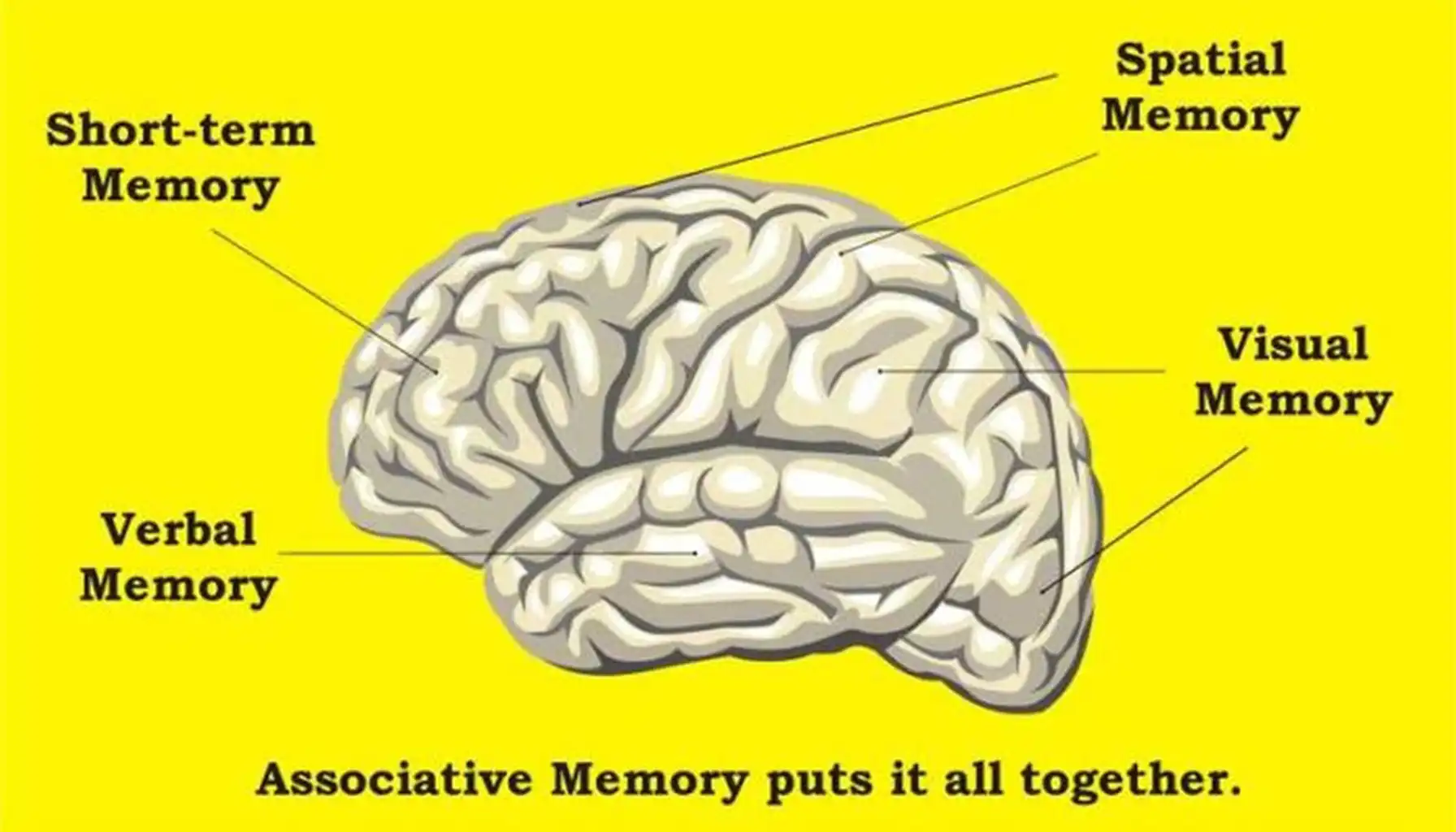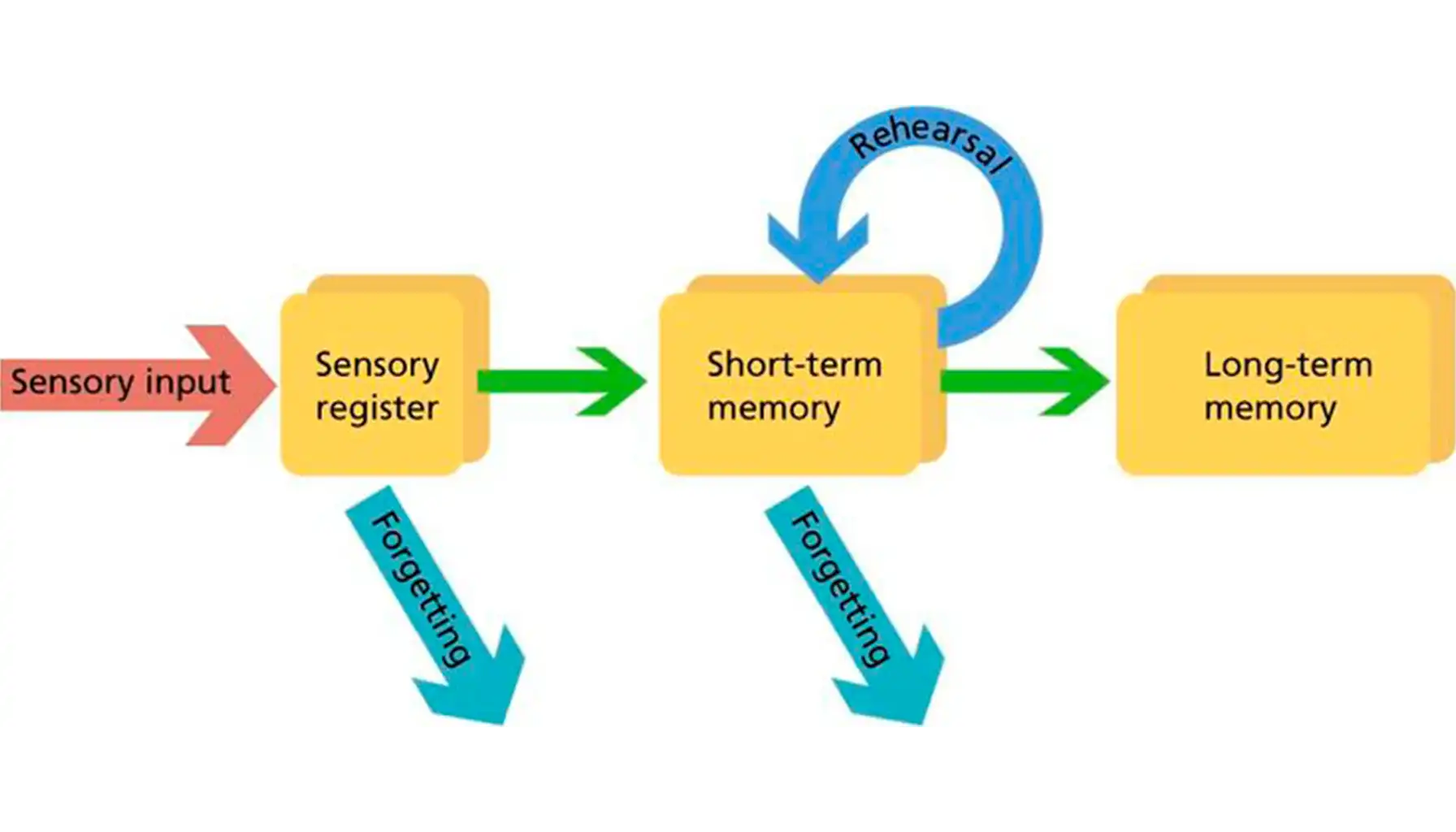Secrets Revealed: How to Improve Short Term Memory

Contents:
So, what is short-term memory?
At the most basic level, the short term memory definition describes our ability to hold and manipulate information for a short period of time, literally a few seconds or minutes.
Knowing the short term memory definition is undeniably crucial for everyday life; it impacts everything from memorizing a shopping list to retaining information necessary to solve a simple task. But don't underestimate this seemingly simple feature.
Additionally, and critically for learning, it operates as a "buffer," mediating between sensory input and the encoding of memories for the long term.
So, the development and maintenance of it are now actively being studied, often through online memory games.
At the same time, potential cognitive problems are receiving more attention, especially short-term memory loss in young adults.

What Is Short Term Memory Loss
So, we have already found out that it’s a kind of "working memory" of our brain, where information is retained for a short period of time to perform current tasks.
But what exactly happens in the brain when we memorize something for a few seconds or minutes?
Psychologists study this from different angles, and the short term memory psychology definition includes not only a description of processes, but also the study of factors affecting the effectiveness: attention, emotions, stress levels, etc.
Information Storage and Retrieval Mechanisms
Step 1 | Encoding information | This stage involves converting incoming information into a format that the brain can process and store. For example, visual information can be encoded as a sequence of neural impulses. | |
Step 2 | Active maintenance of information | After encoding, information must be kept in an active state so as not to "fly out" of short-term memory. This is achieved by reactivating the same neural circuits. | |
Step 3 | Phonological loop and visual-spatial notebook | The mind model proposed by Alan Baddeley identifies two main sub-components of short-term memory: | |
Phonological loop Responsible for storing and repeating verbal information. | Visual-spatial notebook Responsible for storing and processing visual and spatial information. | ||
Step 4 | Central performer | This is a kind of "conductor" of working memory, which controls attention, coordinates the work of the phonological loop and the visual-spatial notebook, and makes decisions about which information should be retained in memory and which should be discarded. | |
Step 5 | Information extraction | When we need to "recall" something from short-term memory, the brain recreates the same neural activity that was present during its storage. The stronger and more stable this activity is, the easier it is for us to extract information. | |

Limitations
As we have already said, It has a limited amount and storage time. This is due to the physiological features of the work of neurons.
How long is short term memory? On average, it takes about 20-30 seconds if we don't make any effort to retain information. How long does short term memory last with active repetition or recycling - a little longer. But why are there so few?
New information may displace old information.
Research shows that we can store about 7 "chunks" of information in our short-term memory. A "chunk" is any significant unit of information, such as a single word, a number, or even a group of related elements.
Attention plays a key role in retaining information in short-term memory. If we get distracted, information can be quickly lost.
Problems
Impairments can have serious consequences for daily life and learning. Short term memory loss symptoms can range from mild forgetfulness to serious problems with remembering new information and performing simple tasks.
The causes of short-term memory disorders can be different: head injuries, strokes, neurodegenerative diseases, stress, depression, lack of sleep, etc.
People with ADHD often have problems with short-term memory, especially working, which makes it difficult to concentrate and perform consistent actions.
With age, the effectiveness of short-term memory may decrease.
And long short term memory has nothing to do with this, it's about machine learning algorithms.

Short Term Memory Examples
A phone number | When a number is dictated to you, you hold it in your mind while you dial on your phone. |
Following instructions | For example, you listen to how to get to a new place and keep a sequence of turns in your head. |
Performing arithmetic operations in your mind | When you count the change in the store or solve a simple problem in your mind, you use it to hold numbers and intermediate results. |
In general, short–term is an indispensable tool that allows us to navigate the world and perform everyday tasks.
By the way, if you have problems, your doctor can use the short term memory loss ICD 10 classification for diagnosis.
Working Memory VS Short Term Memory
The first is like your personal "draft" in your head.
It is a system that allows not only storing information, but also actively processing and manipulating it.
You can compare, contrast, and paraphrase what you keep in your mind.
It is very useful for solving problems, making decisions, and understanding complex things.
By the way, even with ADHD symptoms, short term memory is often a problem, but more in the context of working memory than simple information retention.
That is, working memory is a more active and complex system that includes, but is not limited to, short–term memory.
To check how your mind works, you can use the short term memory test.
And another important note, do not confuse all this with long short-term memory, this is a completely different story from the world of machine learning and neural networks!
It is, of course, inspired by the principles of the human mind, but it is applied in a completely different field.

Signs of Short Term Memory Loss
Mild forgetfulness
In the early stages, this may manifest itself in the fact that a person forgets where they put their keys, cannot remember the name of a new acquaintance a few minutes after they meet, or asks the same thing several times.
This does not necessarily indicate serious problems, as it happens to everyone due to stress or fatigue.
Difficulties with performing sequential actions
A person may forget what needs to be done next in the cooking process, forget parts of the recipe or instructions.
Concentration problems
It is extremely difficult to keep your attention on the current task, constantly distracted by something else.
Losing the thread of the conversation
You forget what you were just talking about, it's difficult to follow the logic of the conversation, jumping from topic to topic.
Disorientation in time and space
In more serious cases, disorientation in a familiar place may occur, and the current date or day of the week may be forgotten.
Repetition of questions
A person may ask the same question several times, even if he has already been answered.
Difficulty remembering new information
It becomes more difficult to remember the names of new people, new routes, new rules.
In some cases, sudden short-term memory loss and confusion may occur, which requires immediate medical attention, especially if it is accompanied by other neurological symptoms.
How to Recognize It at Different Stages?
In the early stages | The signs may be barely noticeable and can easily be attributed to fatigue or absent-mindedness. It is important to pay attention to the frequency and regularity of such episodes. |
In the later stages | The symptoms become more pronounced and interfere with daily life. A person may experience difficulties with work, study, communication, and self-care. |
For an initial assessment of the state of it, you can use the short-term memory loss test available online, but it is important to understand that this is not a substitute for professional advice. | |

Short Term Memory Loss Causes
As we age, the brain undergoes changes that can affect cognitive functions.
Strokes can disrupt the blood supply to the brain, which can lead to damage to neurons and impairment.
Alzheimer's disease and other forms of short term memory loss dementia are characterized by progressive loss of memory and cognitive functions. Impaired short-term memory is often one of the first signs of these diseases.
Chronic stress and depression can negatively affect brain function and impair memory.
Lack of sleep disrupts the processes of memory consolidation, that is, the transfer of information from short-term to long-term memory.
Alcohol and drugs can have toxic effects on the brain and impair memory.
Some medications may have side effects that affect the mind.
Deficiency of vitamins B12, B1 and other important nutrients can negatively affect brain function.
In some cases, what causes your mind may be related to substance use, for example, short-term memory loss while high.
There are other causes of short term memory loss, such as thyroid diseases, brain infections, brain tumors, etc.





